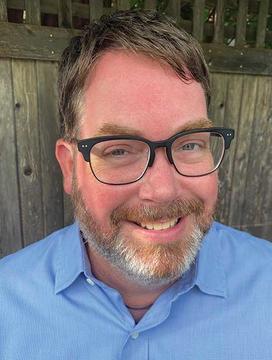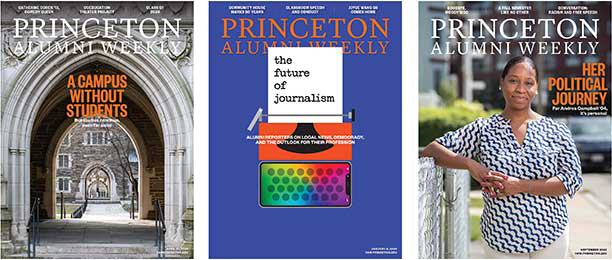From the Editor: An Update on PAW’s Future

As you know from PAW board chair Marc Fisher ’80’s Letter to Readers in our July/August issue, the last academic year ended with uncertainty about PAW’s future governance, funding, and the University role in editorial content. As of mid-August, as we were preparing to go to press, we continued to await answers to these questions.
More than 100 readers responded to Marc, the vast majority endorsing PAW’s continued editorial independence and a significant role for PAW’s alumni board. You can read some of those letters on page 6 and at paw.princeton.edu. (Because most were directed to Marc, we are posting only those whose authors have given permission for publication.)
Some questions appeared repeatedly in the letters from PAW readers:
The University raises the issue of legal liability. Has PAW been sued?
The last lawsuit against PAW that we’re aware of was a defamation suit related to an article that appeared in 1989. In that case, the University, a few Princeton staff members, and The Daily Princetonian were also sued. The claims were dismissed.
On occasion, the PAW editor has a legal question and consults with Princeton’s Office of the General Counsel. We can do this because under the PAW charter, which has governed PAW operations since 2000, the magazine is “eligible to draw as appropriate on the administrative resources of the [Alumni] Council and the University.” In recent years, these questions have centered mainly on issues of copyright and privacy.
The University has expressed concerns about legal accountability related to the fact that PAW staff members are University employees, while most of the board members — who play a leading role in hiring and evaluating the editor — are alumni volunteers.
How dire is PAW’s financial situation?
With few exceptions, PAW has consistently worked within the approved annual budget. The magazine faces the same challenges confronted by commercial publications in attracting external advertising, while University advertisers have continued to purchase space in PAW. In addition, we usually receive about one-third of our budget through a University subsidy.
But classes have found it difficult to pay their PAW bills, and that problem has grown each year. Most classes raise money through dues, and the percentage of dues-payers varies widely. Many have spent most of their collections for PAW, leaving little or no money for anything else. In recent years, past-due bills from classes have mounted. The great majority of classes have paid their bills, but it has not been easy.
This is not a new problem — in fact, it has been discussed repeatedly over the last 50 years. The last reorganization of PAW’s governance, in 2000, resulted from a similar effort to reduce the burden on classes.
Can’t the magazine do its own fundraising?
PAW has been discouraged by the University from seeking donations and has not done so. Some Ivy magazines have mounted fundraising campaigns, but they do not raise enough to operate without university or class support, and they usually have costs as well.
How are the alumni on PAW’s board appointed?
The PAW board includes alumni journalists, alumni who work in the publishing business, and ex officio representatives of the University and the Alumni Council. The PAW board itself has authority for nominating new alumni members, and a vote is conducted by the Alumni Council. As editor, I seek recommendations from current board members and others, recommend potential nominees to the board, and forward those that gain approval for a vote.
What role will alumni have in decisions about PAW governance?
As I write this in mid-August, that remains unclear. The charter lays out a process for change, but we don’t know if this process — which includes a vote by the Alumni Council’s executive committee and ratification by the PAW board — will be followed.
You can read the existing charter at bit.ly/paw-charter.
The PAW staff is grateful for the support expressed in so many of your letters to Marc. Many writers said they find our coverage to be intelligent, substantive, and thoughtful. That’s our goal — and if we succeed, it’s because we reflect our readers. Thank you for reading and for telling us what you think — good and bad, now and always.










1 Response
Ken McCarthy ’81
4 Years Ago‘Formalize the Obvious’
I followed the conversation about PAW’s future in the September with keen interest.
If I read the fine print correctly, currently PAW staff members are employed by the University. One-third of the magazine’s budget comes from a University “subsidy,” not counting unspecified revenue from ads the University purchases in very issue. The University discourages PAW from seeking donations and the magazine’s board complies.
I’m sure conditions are even worse at other institutions, but if this isn’t the very definition of effective control, I don’t know what is. I vote that we formalize the obvious.
Classes can buy space to announce their births, marriages, retirements and deaths, but the University (in the form of its current managers), not the alumni, should be the ones to pay for the privilege of advancing contemporary ideological agendas under the Princeton banner.
University-subsidized PAW has rarely seen a monstrous consensus it didn’t enthusiastically rush to help normalize, whether it’s the past nearly 20 years of unhinged, immoral, and illegal overseas military interventions or the cause du jour, using pseudo-science, genuine medical quackery and criminally negligent statistical projections to justify painful and pointless social and economic dislocations which are now in their 549th day in the U.S. at the time of this writing.